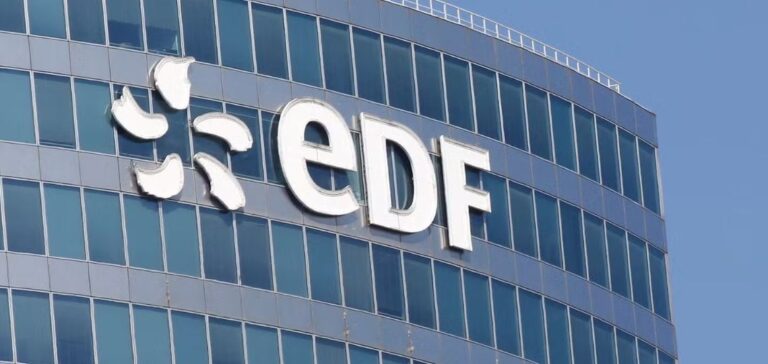The CEO of Électricité de France (EDF), Luc Rémont, stated that electricity produced in France is currently the most competitive in Europe and will surpass that of the United States across all states by 2026. This statement comes two weeks before the end of his tenure, as he was being heard by the Senate’s inquiry commission on public aid to large companies.
A message to industrialists
Luc Rémont directly addressed the criticisms of French industrialists, particularly those with high energy consumption, who accuse EDF of charging excessively high tariffs that threaten their competitiveness. These companies are involved in negotiations for long-term supply contracts with the state-owned energy company. “Electricity, I guarantee, is the most competitive in Europe today and will be tomorrow in the United States, in all American states,” he asserted during his speech to the Senate.
On the wholesale markets, the price of electricity for delivery in 2026 is estimated at just under 60 euros per megawatt-hour (MWh). According to Luc Rémont, this price level corresponds to the current production costs of France’s nuclear fleet. He added that this tariff structure leaves little room for adjustments, especially considering that nuclear energy remains the cornerstone of the national production.
A stance amidst political tensions
The CEO’s statement follows several months of tensions between EDF, the state shareholder, and industrialists. These tensions contributed to Luc Rémont’s dismissal last March, which was confirmed by the Élysée. He will officially be replaced on May 5 by Bernard Fontana, the current CEO of Framatome, EDF’s subsidiary.
Rémont also emphasized that fluctuations in gas prices, an energy imported mainly from Norway, the United States, and Russia, should not be absorbed by EDF through reduced electricity tariffs. “We are not going to start subsidizing French industrialists who are 90% reliant on gas for some of them,” he said, referencing the risk of facing sanctions for abuse of dominant position.
Energy contracts under scrutiny
According to Luc Rémont, the controversy surrounding electricity prices concerns a limited number of players. He insisted that “EDF is not required to subsidize their decarbonization,” rejecting any possibility of tariff reductions even after his departure. This stance reflects a determination to maintain a rigorous management approach in a market subject to significant energy price volatility and increasing regulatory constraints.






















